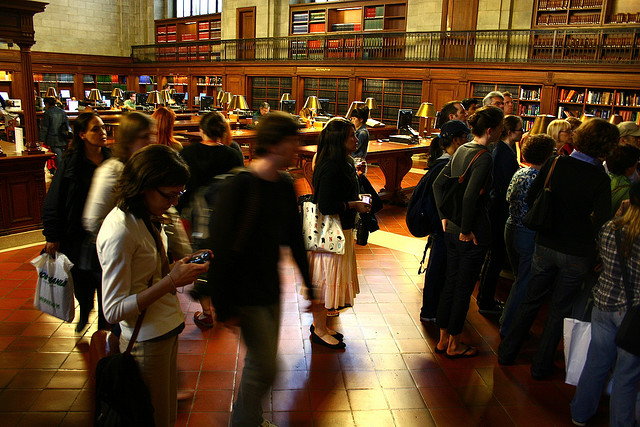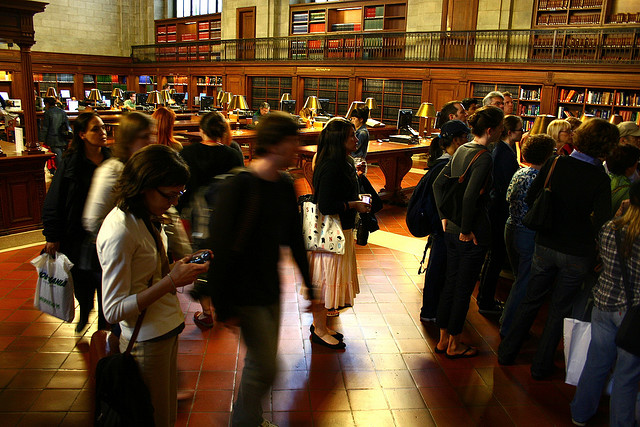Today, I was asked by a PhD candidate in Library and Information Science at the University of Western Ontario, if and how my MLIS education has shifted or changed my view of technology. Before entering this program, my academic research was predominately rooted in ways in which technology, digital media, and social networking can be used to preserve, organize, and most importantly, share information. Technology certainly does have the capabilities of creating these opportunities, but entering this program has also illuminated the strong restrictions that are placed upon digital information.
Thinking back on Justin’s thoughts Toward a New School of Art, he states, “reading is necessary for understanding the world,” and thinks about how art education must not be restricted to a traditional academic classroom setting in order to stay relevant. Blurring these two ideas together, I also feel that art research should be viewed in a similar light. Art education and related information literacy should be about about participation, collaboration, and especially access.
Academic research goes through a long process to be published. The Atlantic’s recent post on the topic clearly explains the process all the way from a paper’s conception, to its publication, to its exclusive academic library access. Open Access is one way in which scholarly research has been able to avoid this, and in turn, allow publications to receive broader readership. Open Access refers to the practice of providing unrestricted access to peer-reviewed scholarly journal articles online. Many of these can be found through the Directory of Open Access Journals.
As seen by programs in place both at Emily Carr University (where Karlyn is studying!) and Portland State University‘s, the field of art and social practice is emerging. As it grows and its scholarship develops, I hope its practitioners and researchers will continue to keep art and social practice collaborative and go down the Open Access route to keep creative engagement accessible.

